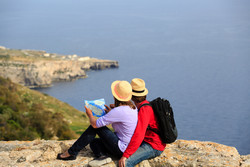New models for sustainable tourism
The future of tourism and its competitiveness revolves around sustainability, prompting new research initiatives on the topic. In this vein, the EU-funded TOSTODEM (Towards Sustainable Tourism Development Models in the Euro Mediterranean region: A case study of Malta and Sardinia) looked at developing sustainable tourism in Malta and Sardinia. It identified tourism-related strengths and weaknesses on these popular touristic islands to support public and private stakeholders in developing a strategy for sustainability and competitiveness. To achieve its aims, the project team investigated how to engage local stakeholders and considered governance approaches for transforming unsustainable tourism into sustainable tourism. To advance knowledge on the topic, it analysed seasonality, statistics, tourism flows, contribution to GDP and tourism revenues. Specific project actions included in-depth interviews with stakeholders in order to raise awareness about sustainable tourism and identify innovative good practices with focus on society, culture and value for money. In Malta, the project team strengthened the EU’s European Tourism Indicator System (ETIS) to improve sustainable tourism management in collaboration with the University of Malta. In Sardinia it collaborated with the Fondazione Sardegna Film Commission to promote sustainable tourism practices through two short films. The team also conducted a cross-comparison of the two destinations, noting the differences in revenue contribution to the GDP and the importance of tourism for each destination. It detailed the sustainable tourism vision of stakeholders, analysed public policy, and examined demand vs. supply. This generated new knowledge about sustainable tourism practices and set the stage to implement the emerging strategies and visions. Overall the project was instrumental in articulating good practices and positive models of sustainable tourism which could prove valuable for the whole Euromed region. Positive social, economic and environmental change can be achieved if tourism in Europe and beyond becomes more sustainable.







